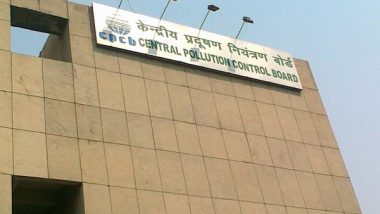New Delhi [India], November 13 (ANI): In a major regulatory relief to non-polluting industries, the Center has announced that industries categorised under the 'White Category' by the Central Pollution Control Board (CPCB) will no longer require prior approval from state pollution control boards to establish and operate.
These permissions are known officially as 'Consent To Establish' (CTE) and 'Consent To Operate' (CTO). The consent to establish is granted by the state pollution control board.
Under the new rules, industries falling under the white category won't need permission from the state pollution board, and the permissions have been merged with the environmental clearance granted by the Ministry of Environment. White Category industries are those considered to have minimal or negligible pollution potential, such as biscuit tray manufacturing, etc.
In a gazette notification issued on November 12, the Ministry of Environment stated that industrial plants scoring up to 20 on the pollution index will no longer be subject to the provisions under sub-section (1) of section 21 of the Air (Prevention and Control of Pollution) Act, 1981, provided they inform the respective State Pollution Control Boards or Pollution Control Committees in writing.
Also Read | West Bengal Shocker: Local TMC Leader Shot Dead in Jagaddal, 1 Held.
Furthermore, plants that have already secured prior environmental clearance under the 2006 notification (S.O. 1533(E)) issued by the erstwhile Ministry of Environment and Forests are also exempted from the requirement for 'Consent to Establish' for their existing operations.
This exemption particularly impacts the industries categorised under the CPCB's White Category, which encompasses operations considered to have minimal or negligible pollution potential.
The 2016 classification lists 39 sectors, including the assembly of air coolers, electric lamps, solar modules, fly ash brick manufacturing, and the repair of electric motors and generators, among others.
These operations are primarily dry, mechanical, or non-emission processes, aligning with sustainability and minimal environmental impact. (ANI)
(This is an unedited and auto-generated story from Syndicated News feed, LatestLY Staff may not have modified or edited the content body)












 Quickly
Quickly

















